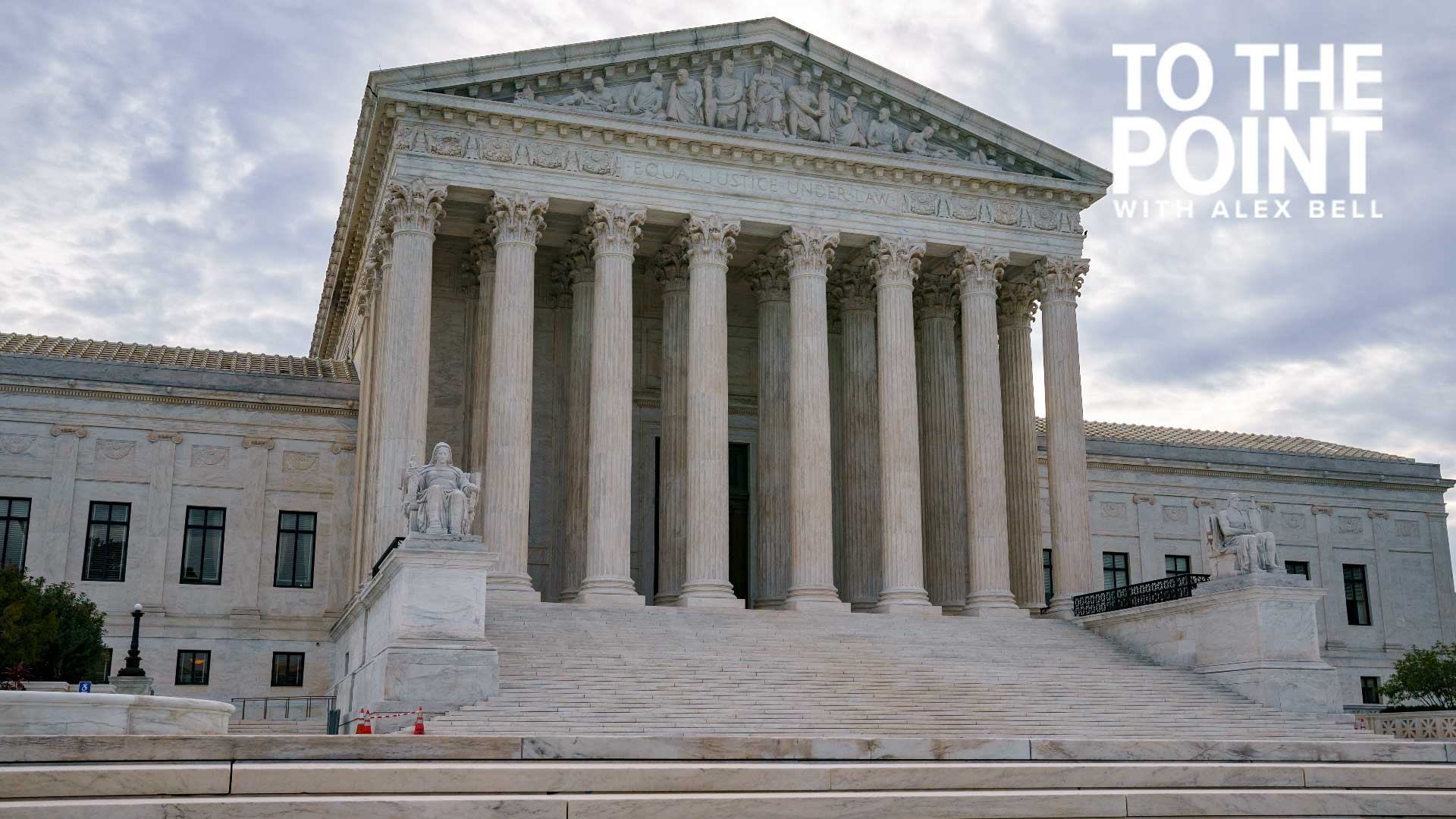EL DORADO COUNTY, Calif. — An El Dorado County man is at the center of a case going before the U.S. Supreme Court Tuesday morning.
He’s fighting a fee imposed by El Dorado County that he and his attorneys argue is unconstitutional.
As George Sheetz and his wife envisioned their retirement, they bought 10 acres outside Placerville, in rural El Dorado County, with plans to install an 1,800-square-foot manufactured home. That was in 2016.
“I went in to get a building permit after I already put a deposit down on the manufactured home and had purchased the property and started doing some of the improvements on the property,” Sheetz recounted to ABC10. “And I couldn't believe what I was hearing.”
When Sheetz applied for a permit, the county charged him $23,420 for something then called a “Traffic Impact Mitigation fee,” implemented by El Dorado County to fund public infrastructure, like roads. (The county now calls it the Traffic Impact Fee Program and has changed how it charges such fees. Under this new structure, one of Sheetz' attorneys said, the fee for Sheetz' home would be less than half of what it was in 2016.)
“When you're looking at how much money you have to try to retire, that is an enormous amount of money to someone like me,” Sheetz said, speaking to ABC10 by phone from the Palm Springs area, where he and his wife spend their winters.
Sheetz fought the fee and lost, paying it under protest so he could move forward with his house, where they still live most of the year.
He took El Dorado County to court, saying the fee was unconstitutional and too large compared to the size of his project.
The fee was put in place by an elected body: the El Dorado County Board of Supervisors. California courts have previously upheld such legislatively enacted fees as constitutional and did so again here. Sheetz lost in trial court and the California Court of Appeal. Then the state Supreme Court denied review, so Sheetz and his attorneys took the case to the U.S. Supreme Court, which agreed to hear it.
Brian Hodges is a senior attorney at Pacific Legal Foundation and on the team bringing Sheetz’ case to court.
“The question that our case asks is, essentially, how much can the government take from a person when they have to go into a permitting office and ask for permission to use their property?” Hodges said in an interview with ABC10.
Through past decisions, he said the U.S. Supreme Court has determined permit fees need to be related to the impact of the development and proportional to its size.
“They can't use that power to take more than what the government is entitled to,” Hodges said.
He argues fees enacted by an elected legislative body – like county supervisors – should not be exempt from that.
The attorneys arguing for El Dorado County were not available for an interview, but the county’s Deputy Chief Administrator Carla B. Hass provided ABC10 with the following statement.
"The outcome of this case could have nationwide ramifications on how local agencies fund the cost of providing needed public infrastructure, such as roads and firefighting equipment,” Hass wrote. “The County fees under attack have already been upheld by the California Superior Court and California Court of Appeal, which confirmed that the county complied with all applicable requirements for the imposition of development impact mitigation fees."
John Sprankling is a professor at the University of the Pacific McGeorge School of Law and is not involved in this case.
ABC10 asked him about the potential impacts if Sheetz wins.
“The real question here is: Should growth pay for itself? Because what the county has done is to impose these traffic infrastructure costs on new residents - new growth - rather than existing taxpayers. And if the Sheetz side is successful, probably those costs are going to be shifted back to all taxpayers, not simply new residents,” Sprankling said.
The Supreme Court’s decision could strike down such legislatively enacted fees nationwide, he said. He wonders whether a win for Sheetz could open the door to lawsuits regarding other charges and fees from legislative bodies.
“It's a huge issue in the case, of course, because - as you know - we charge fees all the time. We charge taxes. We charge user fees. And do we expand, somehow, this notion beyond impact fees to other kinds of fees set by legislation? And how would government work if we did that? So I'm sure the court will be very careful in thinking about the outer boundaries of this doctrine when it decides the case, regardless of who wins,” Sprankling said.
As for the now 72-year-old Sheetz, ABC10 asked if he ever expected his case would get as far as the U.S. Supreme Court.
“When you get to my age, nothing surprises you,” he said with a chuckle.
He said he would like to get a refund of some of the impact fee he paid back in 2016.
“I don't think it's so much of me getting my overcharge fees back as much as it is maybe trying to change things that are going on in this country,” he added.
U.S. Supreme Court Justices will hear oral arguments on Sheetz’ case Tuesday morning, but we won’t know the outcome for months. Typically, Justices release opinions before their recess begins in late June – though they’re not required to do so. Sprankling said it’s likely we’ll have an opinion on this by the end of May.
While there is no video of the oral arguments, people can listen to a live feed HERE. The Sheetz case begins at 7 a.m. PT / 10 a.m. ET on Tuesday, Jan. 9.
WATCH ALSO:



















